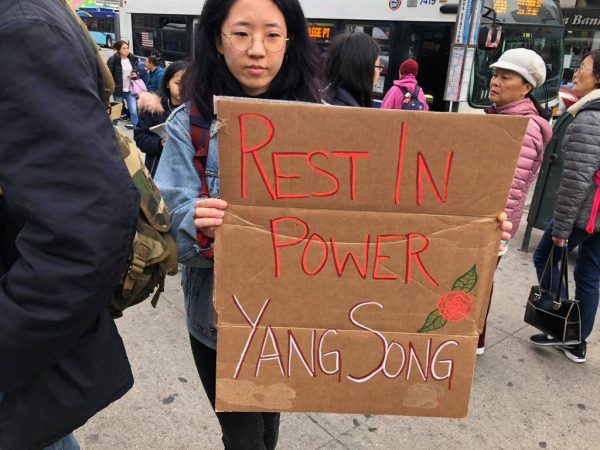 Like, I had to go strip. I had to go, ‘Oh yeah, you want to fuck me? Oh, yeah, yeah, yeah, let’s go to this hotel,’ and I’d drug ni**as up, and I’d rob them. That’s what I used to do! Nothing was motherfucking handed to me, my ni**a. Nothing.
Like, I had to go strip. I had to go, ‘Oh yeah, you want to fuck me? Oh, yeah, yeah, yeah, let’s go to this hotel,’ and I’d drug ni**as up, and I’d rob them. That’s what I used to do! Nothing was motherfucking handed to me, my ni**a. Nothing.
Full disclosure: I don’t actually care about Cardi B. Nothing that she does or creates is essential to my life and her behavior consistently irritates me. Yes, I’ve bopped along to Bickenhead (a certifiable summertime bop) and her verse on G-Eazy’s No Limit speaks to my shriveled hooker heart, but beyond the music, I don’t care about Cardi B. I didn’t watch her on Love and Hip-Hop (because I don’t acknowledge Mona Scott, unless it’s L&HH: Miami), I didn’t listen to her mixtapes, and I wasn’t actually aware of her existence until Bodak Yellow’s release became a massive cultural event. Since then, I’ve made note of particularly compelling moments in her career as they appear on twitter: past colorist and racist comments, blatant transphobia, defence of her then boyfriend Offset’s homophobia, mockery of a mother with a dead child, constant feuding with Nicki Minaj, etc. Now, I’ve written before about the prevalence of bigotry in the hood and how being “ghetto” is not an excuse for ignorance, so it would be disingenuous of me to defend her past behavior. I won’t do it. So, when I say “leave Cardi B alone”, it’s not about that. It’s about how local jagoffs on the internet took the issue of a sex worker operating on the edges of what’s considered socially acceptable to survive and turned it into a crusade against her which likened her to R.Kelly and Bill Cosby.
On Sunday, March 24, 2019, an old video of the rapper surfaced on twitter, where all discourse goes to die. In the video, Cardi can be heard responding to accusations that she doesn’t deserve her fame or success because she didn’t “work for it.” It’s a filthy lie that sex workers don’t work as hard as or harder than anyone else, and yet that lie lives on because of misogyny, whorephobia, and general stupidity. We don’t get days off. “Down time” is spent in the gym, coding websites, designing ads, engaging in advocacy, and freestyling. We function as surrogate spouses, therapists, and friends. We have to work on our bad days, our bloated days, and our heavy flow days. All we do is work, so kill that lie.
In the video, Cardi starts by saying, “Ni**as must have forgotten the shit that I did to motherfucking survive.” Now, Cardi has a thick accent, clearly influenced by her New York and Latinx roots, so some of the words are difficult to identify with 100% certainty. But it sounds like—and this is the story the internet has decided to run with—she goes on to say that men would approach her at work, ask her to (most likely) break club rules and have sex with them, and go home with her where she would drug them and then rob them. “Like, I had to go strip. I had to go, ‘Oh yeah, you want to fuck me? Oh, yeah, yeah, yeah, let’s go to this hotel,’ and I’d drug ni**as up, and I’d rob them. That’s what I used to do! Nothing was motherfucking handed to me, my ni**a. Nothing.”
I firmly believe that robbing men is just taking reparations for the unending misogynistic and patriarchal bullshit we’re subjected to on a regular basis. I also believe that sex workers should be compensated for their time at all times if you’re asking them to provide labor of any kind. So I don’t care about her lightening the pockets of these men. If we’re being pedantic and dumb, we can acknowledge that drugging and robbing men, either as separate acts or in concert, is illegal. It’s “objectively” wrong. But I still don’t care. To quote MsGizelleMarie, “There’s no rules to survival sex work.” Encouraging clients to drink a little bit more or do another line, taking an extra $20 for cab fare when a john is in the bathroom, calling the police when a client gets too aggressive—we all do what we have to do to stay safe, pay rent, feed our kids, buy our meds, and take care of our parents. Cardi B became a stripper after the loss of her civilian job forced her to live with an abusive ex and drop out of college. That is survival sex work.
When your literal life is on the line, the boundaries between the available options and the acceptable options start to blur. If you have never had to choose between food and paying a bill, this is not the place for you to clutch your pearls. This conversation is not the place for you to make yourself heard at the expense of poor, survival sex workers. If you can leave sex work today and find employment tomorrow without having to explain the gaps in your CV because of your education or connections, this is not the time for you to talk about your anecdotal experiences. You don’t have the range or the right to derail this discussion. If you can call the police when a client gets out of line without worrying about being railroaded by ICE, I don’t care about your opinion. I don’t want to know what you women who can openly talk about your sex work careers without losing jobs, respect, or your lives would do in Cardi’s place. Because you have never been in Cardi’s place.


 Like, I had to go strip. I had to go, ‘Oh yeah, you want to fuck me? Oh, yeah, yeah, yeah, let’s go to this hotel,’ and I’d drug ni**as up, and I’d rob them. That’s what I used to do! Nothing was motherfucking handed to me, my ni**a. Nothing.
Like, I had to go strip. I had to go, ‘Oh yeah, you want to fuck me? Oh, yeah, yeah, yeah, let’s go to this hotel,’ and I’d drug ni**as up, and I’d rob them. That’s what I used to do! Nothing was motherfucking handed to me, my ni**a. Nothing.
